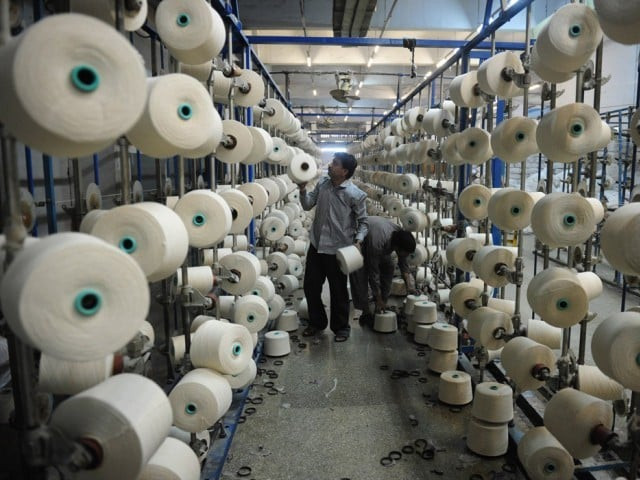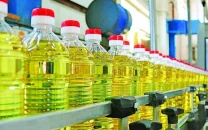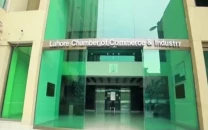Export package: Commerce minister assures textile sector of govt support
Urges value addition in textile exports, modernisation of manufacturing units

Urges value addition in textile exports, modernisation of manufacturing units. PHOTO: AFP
“We are exploring markets in other emerging economies to find new export avenues,” he claimed, adding that Pakistan’s exports have increased by 38% as of December 2016, after obtaining Generalised System of Preferences (GSP-Plus) status.
Talking to the media after inaugurating the regional office of All Pakistan Textile Mills Association (Aptma), Malik said the government is committed towards the growth of textile sector and the Rs180 billion export enhancement package is a major step in that direction.
He said the government fully supports value addition in textile products and modernisation of textile sector by importing advanced machinery and equipment. Malik assured that export enhancement package will be increased in size as time progresses, particularly for textiles sector.
Speaking on the occasion, Aptma Chairman Aamir Fayyaz Sheikh said that Pakistan requires export-led growth for economic growth and stability of the country.
‘Textile industry consumes more water than needed’
He said that exports must touch the $50 billion mark to ensure effective economic growth and prosperity in the country. The textile industry contributes 60% in total exports of the country, which is considered the backbone of the economy, he added.
Emphasising the importance of a competitive business environment, he said that Pakistan is facing tough competition from regional rivals and needs to upgrade its production mechanisms to become cost-competitive.
Sheikh said that high energy prices are a major problem for the textile industry especially the spinning, weaving and processing industries. He said that availability of energy at regionally competitive prices is also important.
Published in The Express Tribune, September 24th, 2017.
Like Business on Facebook, follow @TribuneBiz on Twitter to stay informed and join in the conversation.



















COMMENTS
Comments are moderated and generally will be posted if they are on-topic and not abusive.
For more information, please see our Comments FAQ